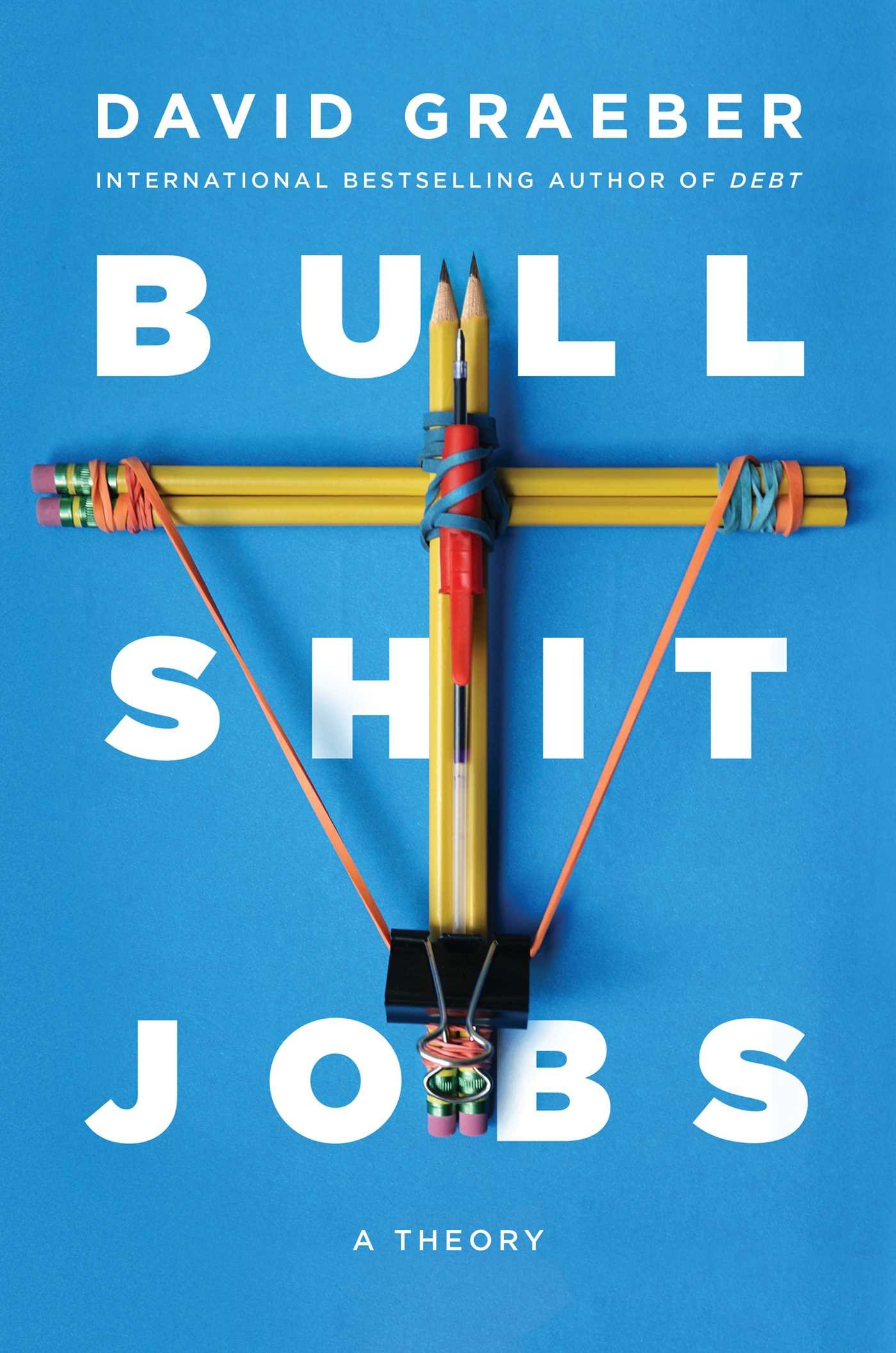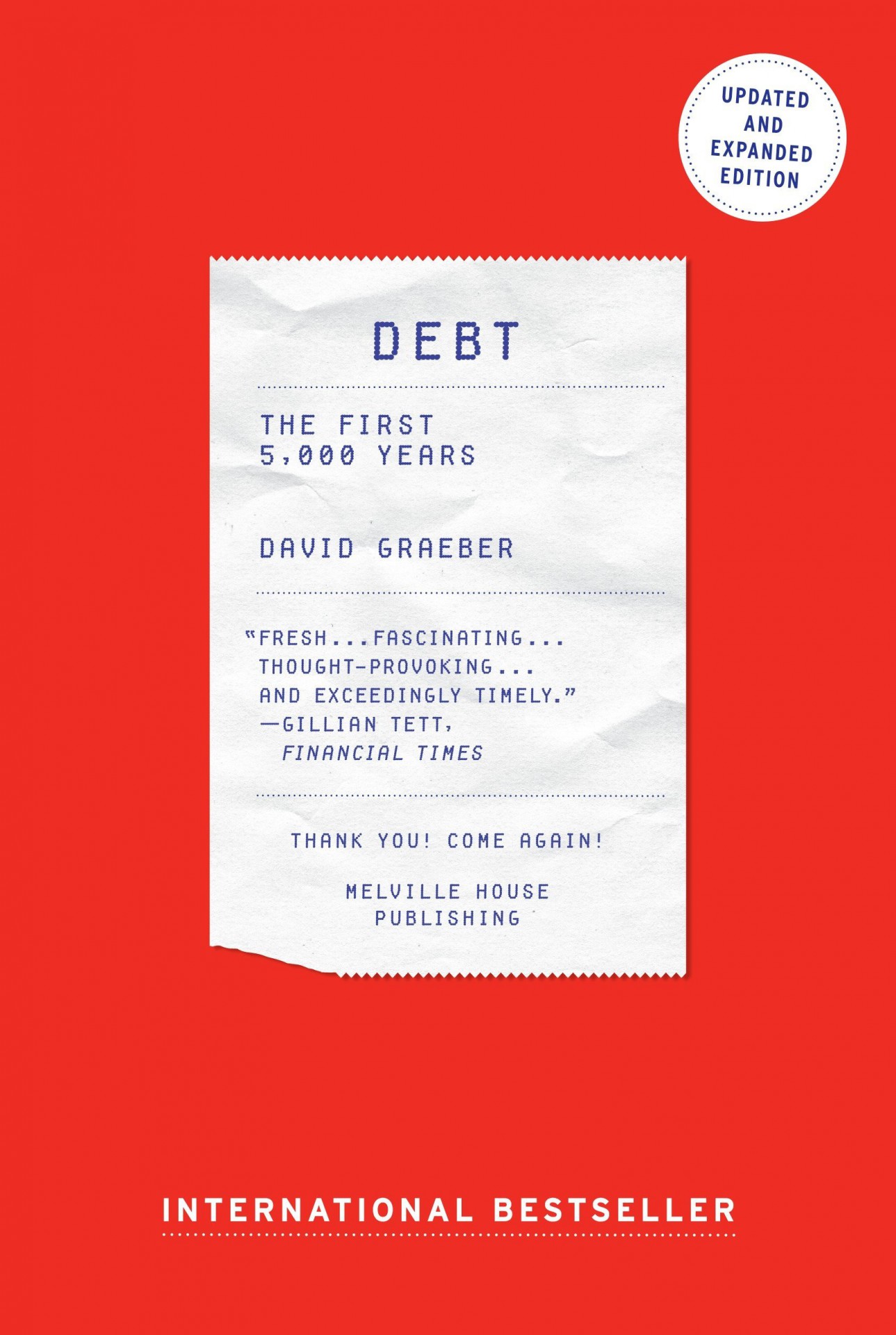by David Charles
David Graeber, author of one of the most influential books I’ve ever read—Debt: The First 5,000 Years—died earlier this week.
David Graeber may have been professor of anthropology at Yale, Goldsmiths and finally the London School of Economics, but he was always conscious that his work must not be allowed to stifle in the deoxygenated air of academia.
He was a practical and public intellectual who faced down the big social inequalities of our time and has given thousands of people the tools to build an alternative.
Occupy debt
Graeber came to my attention in 2011 as something of a doorman for the Occupy movement. He opened doors we thought were permanently locked and showed us entire suites of rooms that we never could have imagined were there.
Reading Debt: The First 5,000 Years, I often laughed.
I learned that systems of credit and debt, far from being the pernicious invention of modern capitalists, are how human societies have managed their economic affairs for millennia. But I also learned that we are perhaps the first society to orgy in credit and debt without having in place the checks and balances that protect the poor from catastrophe.
Graeber traces how these checks and balances came into being in ancient Sumer:
In years with bad harvests especially, peasants would start becoming hopelessly indebted to the rich, and would have to surrender their farms and, ultimately, family members, in debt bondage. Gradually, this condition seems to have come to a social crisis—not so much leading to popular uprisings, but to common people abandoning the cities and settling territory entirely and becoming semi-nomadic ‘bandits’ and raiders. It soon became traditional for each new ruler to wipe the slate clean, cancel all debts, and declare a general amnesty or ‘freedom’, so that all bonded labourers could return to their families.
Biblical prophets also formalised this system of ‘Jubilee’ and cancelled all debts every seven years. This was how humans arranged things for centuries: all debts cancelled, every seven years.
Its simplicity and justice still makes me laugh.
Graeber dared us to wonder why our society couldn’t declare regular jubilees, write off all debts and protect the poor against the wealthy? There’s no reason why not. It’s a choice.
As you can imagine, this colour of politics was too much for the fine upstanding Yale University and we were lucky that Graeber decided to move to London—in fact, he joined the university over the road from where I lived: Goldsmiths.
On bullshit jobs
Graeber taught a number of my friends at Goldsmiths and I attended a few of his public seminars, where we got to discuss and share ideas in an atmosphere of open debate. It’s hard to overestimate this guy. He was like a rockstar to me and my friends.
In fact, Graeber’s 2013 article On the Phenomenon of Bullshit Jobs came about after a friend of mine, STRIKE! magazine’s Vyvian Raoul, asked Graeber whether he had ‘anything provocative that no one else would be likely to publish’.
Oh yes he did. It was an idea that would call into question the value of entire industries, let alone jobs—including, perhaps, his own.
This was his original thesis of ‘bullshit jobs’:
Huge swathes of people, in Europe and North America in particular, spend their entire working lives performing tasks they secretly believe do not really need to be performed. The moral and spiritual damage that comes from this situation is profound. It is a scar across our collective soul. Yet virtually no one talks about it.
The article hit such a nerve that it crashed the magazine’s servers multiple times and was copied and republished (frequently by bullshit companies) across the known world. In 2018, Graeber expanded his ideas and the polemical article became a more carefully researched book.
The bullshitisation of work
In his book, David Graeber details a taxonomy of five varieties of bullshit job, each with its own identifiable features. Before explaining further, Graeber stresses that there can be no objective definition of a bullshit job: if an employee asserts that their job is bullshit, then bullshit it is.
Likewise, however, it’s very hard to argue against someone who believes that their job isn’t bullshit. So don’t be offended if you recognise your job as one of those broadly categorised as bullshit. Maybe it’s not for you.
Nevertheless, the response to Graeber’s book seems to suggest that people know when what they’re doing is worthless—even if they’ve buried that sense deep down inside.
- Flunkies: people whose only purpose is to make someone else look important. Doormen, concierges, some receptionists and personal assistants.
- Goons: those people whose job has an aggressive element. The military, but also most lobbyists, PR specialists, telemarketers, and corporate lawyers.
- Duct tapers: employees whose jobs exist only because of ‘a glitch or fault in the organisation; who are there to solve a problem that ought not to exist’.
- Box tickers: ‘employees who exist only or primarily to allow an organisation to be able to claim it is doing something that, in fact, it is not doing’. Bureaucrats, in-house magazine writers and the unfortunate authors of unread government commissions.
- Taskmasters: these employees come in two types. Type 1 Taskmasters are the opposite of Flunkies: ‘unnecessary superiors rather than unnecessary subordinates’. Type 2 Taskmasters are the bullshit generators: those whose ‘primary role is to create bullshit tasks for others to do, to supervise bullshit, or even to create entirely new bullshit jobs’.
Ring any bells? I recognise plenty of my past jobs in this list—and even a few of the ones I force myself do now I’m self-employed. I’m not alone in having thoroughly absorbed the logic of the bullshit economy.
The antidote
As well as describing the boundaries of bullshit, Graeber also suggests an antidote, reasoning that nothing can be called bullshit if it’s concerned with caring.
Now, maybe there are arms dealers who ardently believe that they’re in a caring career, but even so I think we can agree with Graeber that some jobs are more naturally compatible with caring: nurses, cleaners, teachers, mechanics and electricians (of the non-duct-taping variety) to name a few.
By choosing a non-bullshit career as a member of what Graeber calls the ‘caring classes’, you almost certainly won’t be rewarded financially. There is an inbuilt inequality in our society that seems to imply that bullshit jobs are so sociopathically awful that they need to be highly paid otherwise no one but sociopaths would be masochistic enough to take them.
The book summarises the results of a study by the New Economic Foundation that looked at the social return generated by various different jobs. See if you can identify the bullshit ones:
- City banker – yearly salary c. £5 million – estimated £7 of social value destroyed for every £1 earned
- Advertising executive – yearly salary c. £500,000 – estimated £11.50 of social value destroyed per £1 paid
- Tax accountant – yearly salary c. £125,000 – estimated £11.20 of social value destroyed per £1 paid
- Hospital cleaner – yearly income c. £13,000 (£6.26 per hour) – estimated £10 of social value generated per £1 paid
- Recycling worker – yearly income c. £12,500 (£6.10 per hour) – estimated £12 in social value generated per £1 paid
- Nursery worker – salary c. £11,500 – estimated £7 in social value generated per £1 paid
See any injustice there? It was something that was deeply felt at the Occupy protests—indeed, Graeber describes the Occupy movement as the ‘revolt of the caring classes’. He observes that the most common complaint heard at the protests went something along these lines:
“I wanted to do something useful with my life; work that had a positive effect on other people or, at the very least, wasn’t hurting anyone. But the way this economy works, if you spend your working life caring for others, you’ll end up so underpaid and so deeply in debt you won’t be able to care for your own family.”
But of course the Occupy movement wasn’t enough. That’s why Graeber wrote this book: in the hope that it would offer millions more flunkies, box tickers and duct tapers the intellectual courage to quit and join the ranks of dissenters.
Funnily enough, though, the only reason STRIKE! magazine—and Graeber’s original polemic—ever existed at all was thanks to a bullshit job.
Bullshit origins of STRIKE!
Last year, I interviewed Vyvian Raoul for a review of Bullshit Jobs that I never finished writing. He told me how, back in 2013, he’d been working as a communications officer for a big charity in London. A classic bullshit job.
‘It was basically internal PR, jeeing up the troops,’ he explained. ‘People hated us. We should have been spending the money on more nurses.
‘One time I corrected the grammar on a blogpost that the CEO wrote,’ Raoul said. ‘It was the only useful thing I ever did there—and I got a bollocking for it.
‘From that point on, I’m coasting,’ he continued, ‘and I started setting up STRIKE! in my spare time at work.’
Raoul remembers exactly where he was when he first read On the Phenomenon of Bullshit Jobs:
‘I was reading it in Vauxhall Park in the sun when my boss walked past. We reluctantly greeted each other,’ Raoul said. ‘I knew, in that moment, that I was going to leave the job—and maybe jobs full stop.’
The first issue of STRIKE! was paid for out of his redundancy pay from that bullshit job. Graeber’s article was published in the third issue of the magazine and was only posted online as something of an after thought. It went viral: office workers around the world nodding their heads and beating their desks.
‘We got quite a few people emailing in to say thanks for publishing the article and that they’d left their jobs on the basis of it,’ Raoul told me.
I like the circularity of this story. Severance pay from a bullshit job liberated Vyvian Raoul and gave him the independence he needed to start a radical newspaper that published a tract against bullshit jobs, which has itself inspired another generation of bullshit employees to quit and revolt.
Raoul finished our conversation about Bullshit Jobs in a reflective mood: ‘Perhaps liberation is more of a process than a grand, Utopian, revolutionary moment,’ he suggested. ‘And maybe that’s the point of the book?’


